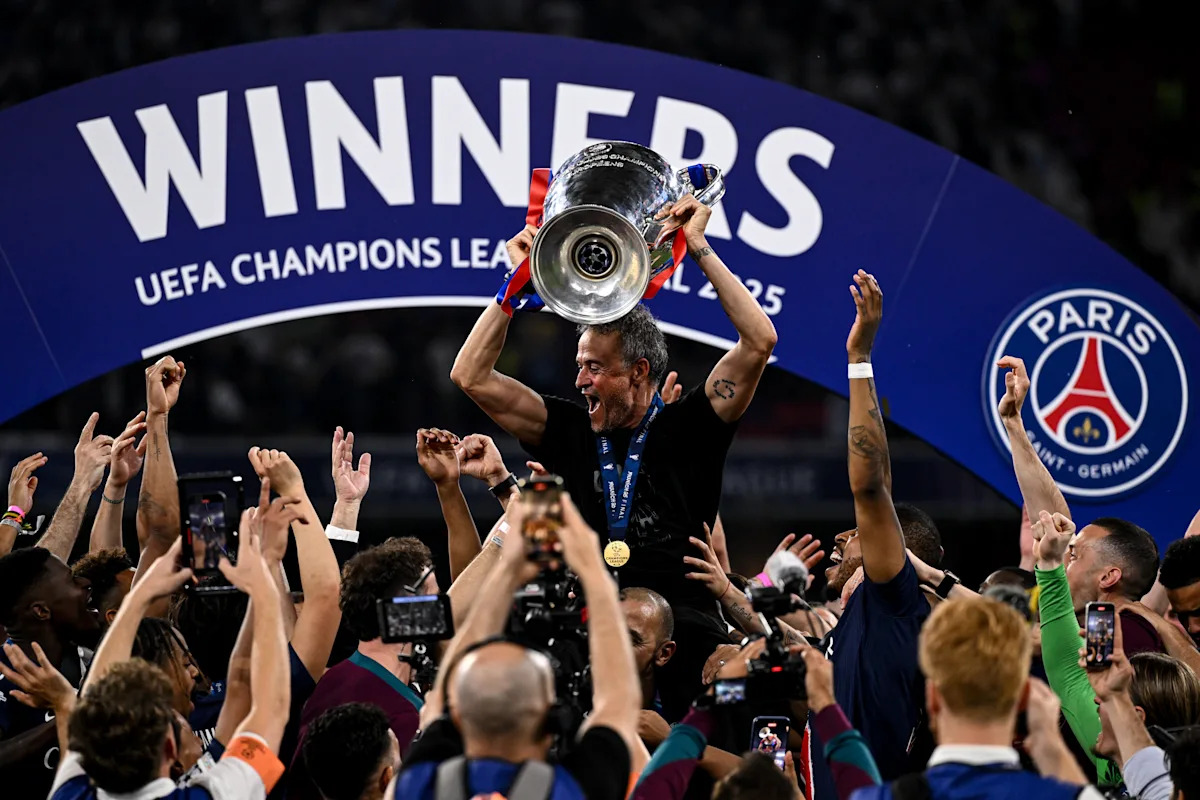In the final stages of Paris Saint-Germain’s era of star-studded teams, Kylian Mbappé remained still in a dimly lit room, listening intently as head coach Luis Enrique described his vision for a Champions League triumph in 2025. He began by referencing Michael Jordan. "Michael Jordan,” Enrique emphasized passionately in Spanish, while Mbappé—the rising star of soccer—quietly absorbed the words.
For a minute and a half, Enrique animatedly gestured towards Mbappé, laying out his philosophy nearly like a manifesto. “I believe you need to score goals,” Enrique told him, “but that’s not all.” He explained that Mbappé would also need to spearhead an aggressive, cohesive press. If he could lead, Enrique expressed, they would become an unstoppable “machine.”
This was the vision Enrique embarked upon when he joined PSG in the summer of 2023. However, several challenges remained. Over the previous decade, stars like Zlatan Ibrahimovic, Neymar, and Lionel Messi had been “treated like gods.” By the time Enrique stepped in, only Mbappé was left, but his presence complicated Enrique’s goals.
The stringent pressing strategy was unfeasible with only nine or ten players willing to commit. Although Mbappé demonstrated incredible talent, he sometimes became an obstacle. “We defend him to prevent fatigue and attack to free him,” Enrique reflected last year. “When he leaves the field, the team crumbles. I believe we can improve next season.”
This narrative reached its climax in Munich, where PSG defeated Inter Milan 5-0, capturing their first European crown. Enrique celebrated this achievement, honoring his late daughter amid the jubilation. None of this would have been possible with the caliber of players PSG had traditionally pursued.
“Had it been the same policy of signing superstars, PSG wouldn’t have been an option for me,” Enrique remarked last year. “The team with Neymar, Messi, and Mbappé? No chance.”
While the trio dazzled the global football stage, they never managed to win a single knockout match in the Champions League. The squad suffered from age and instability, lacking cohesion despite their individual brilliance, often leaving them fragmented on the pitch. Messi’s age weighed him down; Neymar struggled with injuries and was unable to contribute significantly; while Mbappé often opted out of the intense effort required.
In contrast, Enrique has since crafted a team that functions on unity, defending and attacking as a cohesive unit. The best teams operate with all players contributing. When strikers sprint toward the opposing goalkeeper, wingers respond by seeking the next pass, and fullbacks continue the momentum. They may concede possession at times but consistently tilt the field in their favor, dominating play on enemy territory.
That’s what Enrique has been building within PSG over the past two years.
Initially, they spent around $800 million in Qatari funds, but unlike previous approaches, the focus shifted to signing younger, talented players such as Désire Doué and João Neves eager to prove themselves. The club invested in young, hungry individuals rather than seasoned superstars.
Together, they evolved into a “f***ing machine,” committed to their pressing game—emphasizing rigorous movement and strategic execution. They demonstrated their capabilities against strong teams like Liverpool, Aston Villa, and Arsenal.
On Saturday, PSG delivered a masterclass. Emphasizing a relentless and straightforward attacking strategy, they stampeded through the final against Inter Milan, pressing them from the outset and seizing early opportunities.
After just 11 minutes, Marquinhos recovered the ball deep in Inter’s territory, leading to a swift goal after eight passes.
This was the vision Enrique had hoped to fulfill, culminating not only in a historic Champions League victory but also in titles for Ligue 1 and the French Cup throughout the season.
No need for more Kylian Mbappés or Lionel Messis.
Fan Take: This news is significant for soccer fans as it highlights a shift away from reliance on individual superstars toward cohesive team play, redefining success in contemporary football. As younger talents emerge and contribute to this new vision, it could signal a transformative era for not just PSG, but the entire sport itself.



